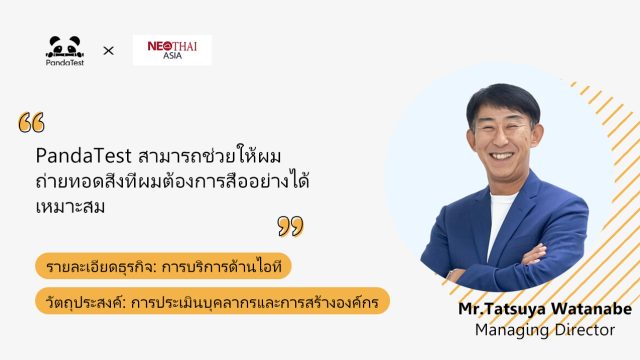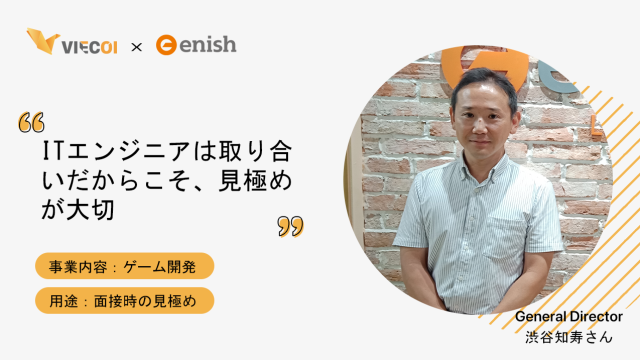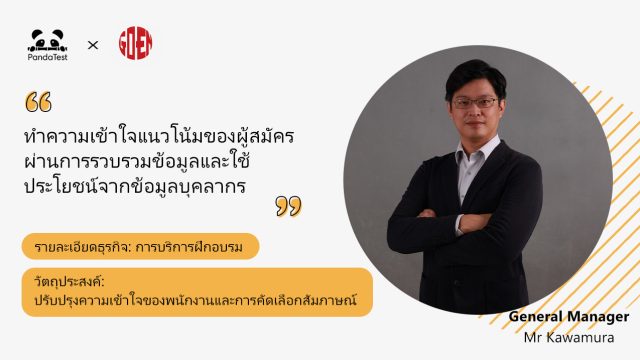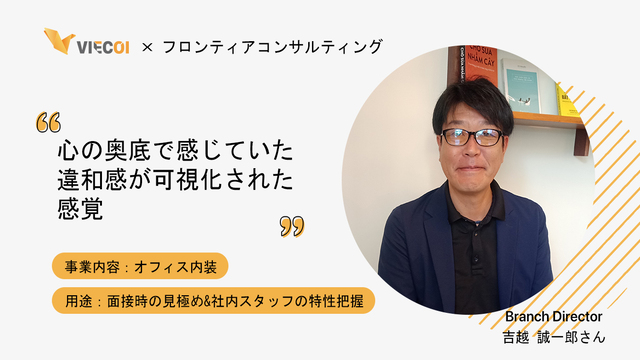“Understanding candidate trends through data accumulation and utilizing personnel data” – GOEN

GOEN Business Training is the first company in Vietnam to offer a flat-rate, unlimited online training service for middle managers.
The company continues to receive support from Japanese companies in Vietnam for its combination of visualization of the management level of current managers, assessments that allow comparison with other companies, and flat-rate training.
We spoke with Kawamura, the company’s president and also in charge of recruitment.
Please tell us about any problems you had during interviews before introducing Pandatest.
Our company placed importance on interviewing leaders who had high expectations. However, we felt it was difficult to assess them based on resumes and interviews alone.
For example, we had cases where candidates had problems after joining the company, such as pursuing personal gain despite being in a leadership position, and early resignations occurred one after another.
Early resignations have a negative impact on an organization more than I thought. In addition to the time and money spent on interviewing and recruiting candidates, we were most concerned about the negative impact on other staff who were working hard.
Why has solving this problem become such a high priority?
Due to the nature of our business, we aimed to have a small, elite organization. Therefore, in addition to myself as the president, core personnel are key to business development.
Given that premise, if we are not successful in recruiting leadership members who cannot afford to leave early, we will be unable to expand both as an organization and as a business.
As a result, the priority was inevitably raised.
What were the other solutions and options?
Before we introduced Panda Test, we conducted two interviews before the candidate joined the company. During the interview, we asked about the candidate’s past experiences and then used our intuition to judge how well the candidate matched our company.
In addition, we focused on aligning the evaluation criteria with the candidate in advance, as well as on orientation after joining the company.
Why did you decide to improve your assessment at the time of the interview rather than taking other measures?
After all, I realized that it would be too late to do so after joining the company. As I mentioned earlier, our company has around 20 employees, so leaders have a large influence on other employees, both in a good and bad way. Therefore, I felt that early departure after joining the company would have a negative impact on other staff members.
From this perspective, I decided that it was important to make as many assessments as possible before joining the company.
How did you go about building consensus within the company?
To reach a consensus within the company, I clearly explained the cost-effectiveness, especially the two benefits: 1) it functions as a screening tool during interviews (for candidates who seem particularly unsuitable), and 2) using Panda Test increases value (data) and allows us to understand our company’s trends. Ultimately, I, as the company president, made the decision.
What do you think are the good points of Pandatest?
I thought it was great that it not only visualizes aspects that cannot be seen through interviews alone, but also allows for trend analysis by comparing past early leavers, retained employees, and other candidates through accumulated data.
For example, in our company, we have noticed a tendency for candidates who are not highly motivated to grow to not be a good fit. Therefore, we use it as a form of pre-screening, and if a candidate does not meet the criteria before the interview, we will not be a good fit.
What are your favorite evaluation criteria on Pandatest?
I like the comparative analysis section.
What kind of companies do you think Pandatest is recommended for?
It is recommended for companies that need to hire leaders, managers, and other management-level positions, regardless of industry or business type, or for important positions where mismatches are to be avoided.
I personally feel that there is value in accumulating data in particular. For example, you can go into an interview after formulating a hypothesis based on the data. Also, if you have an in-house HR person, it can serve as a basis for discussion about whether or not a candidate has potential.
The appeal of Panda Test is that it can be used in many ways from the perspective of accumulating data.
It is also affordable in terms of cost, so I recommend you start using it as soon as possible!





